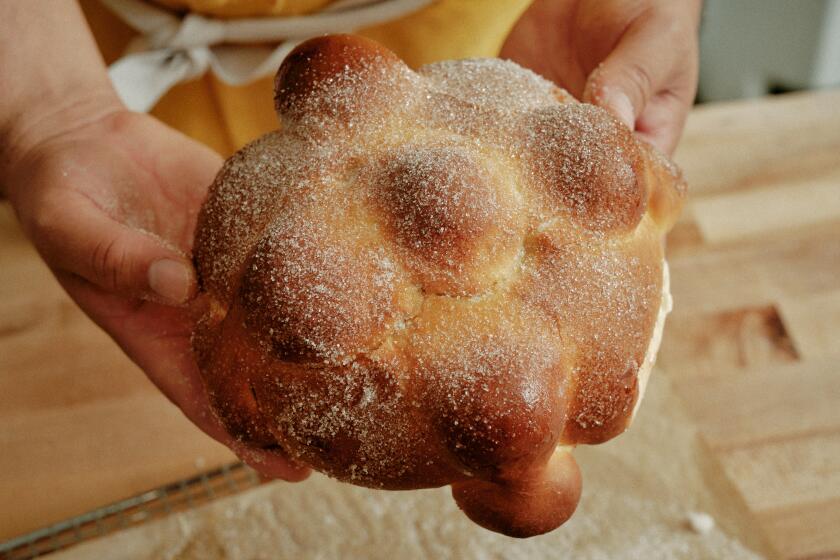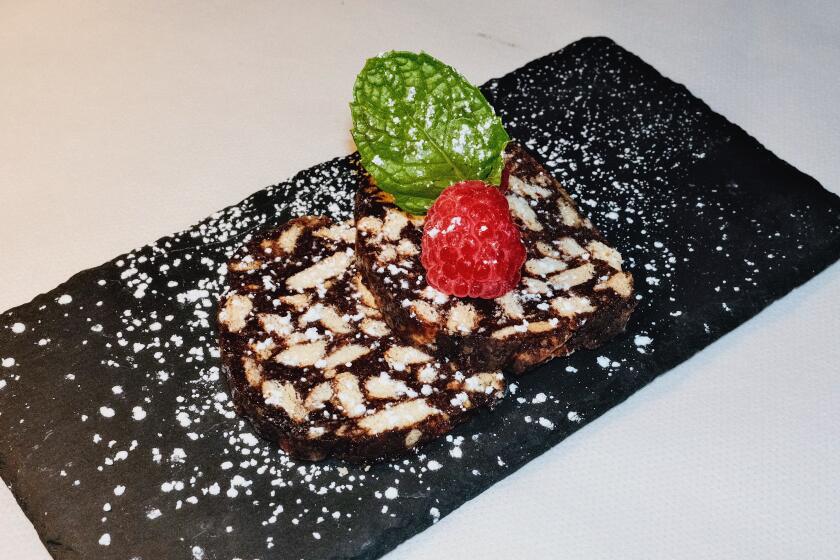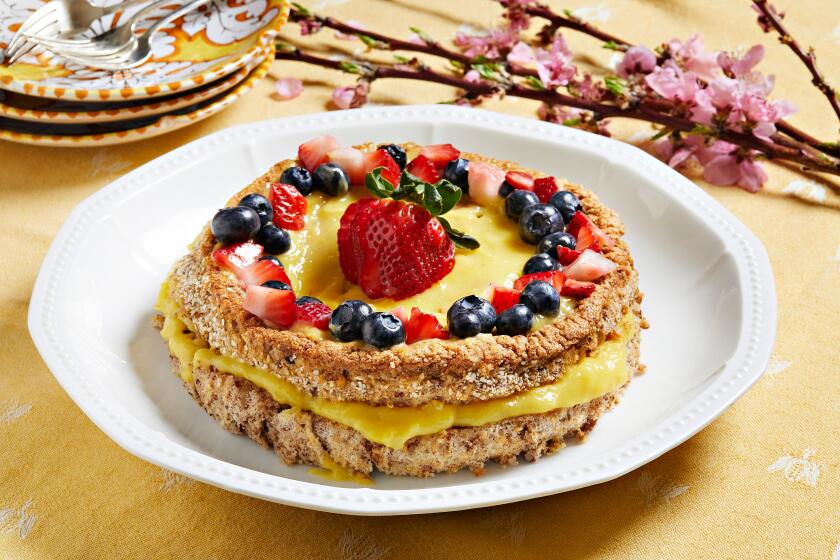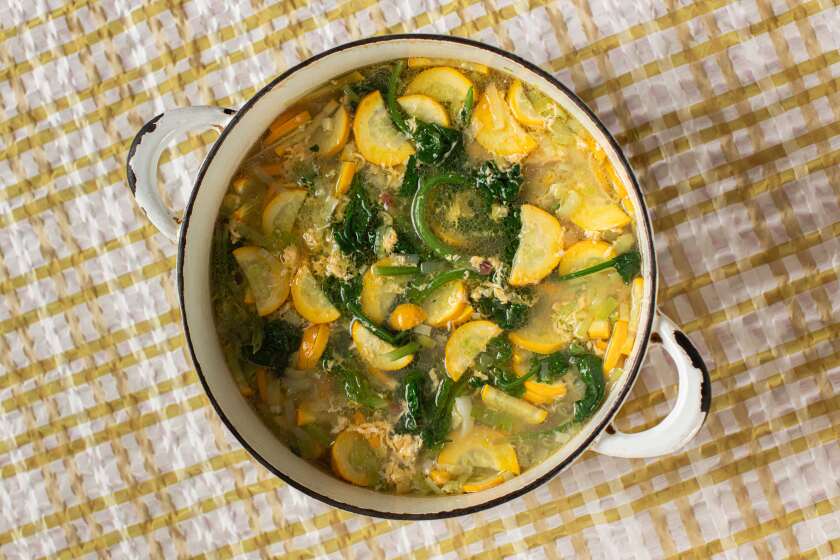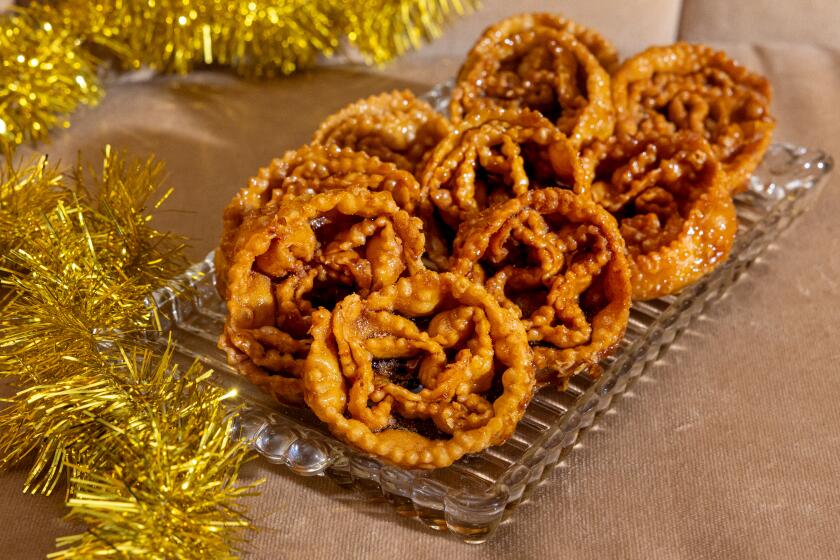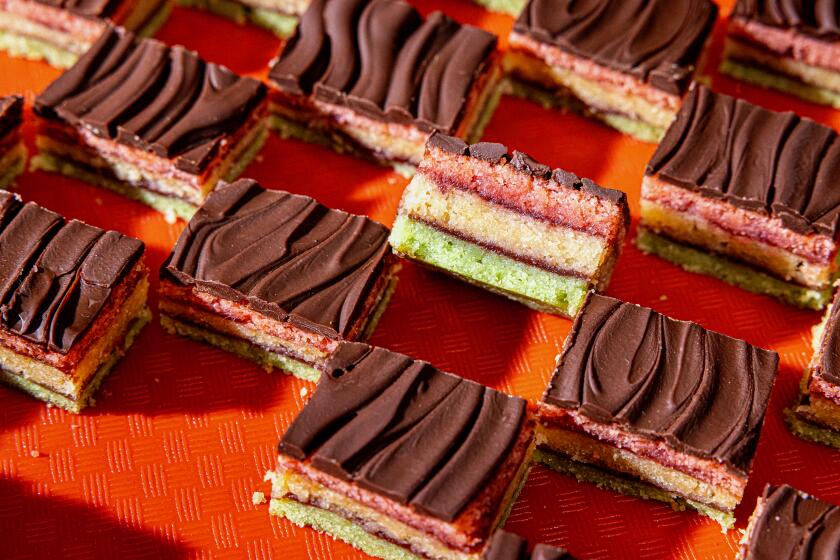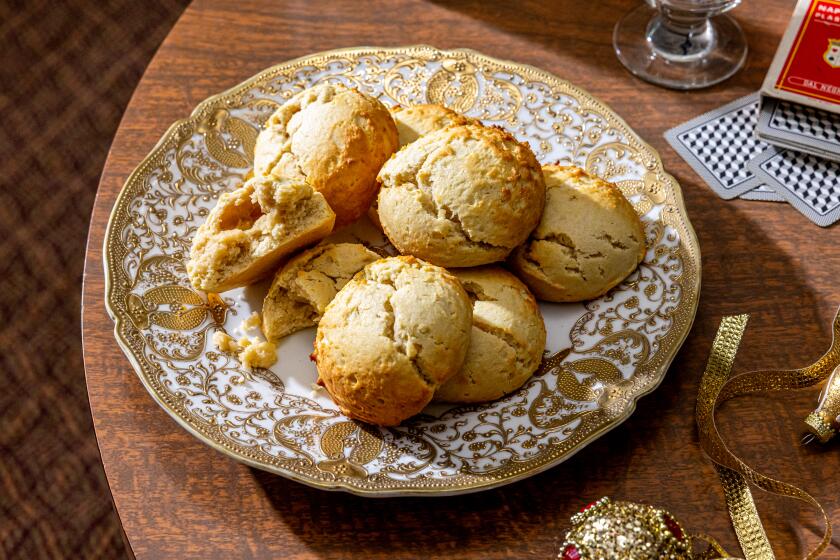Yeasted Breakfast Cake With Peaches and Plums
This recipe is meant to be a showcase for the best stone fruit of summer, but it can also be used as a blank canvas for whatever fruit you have lying around that’s about to go bad (see Variations, below, for ideas). If you’re the type who wakes up early and doesn’t eat breakfast until later in the morning, make this cake all in one go on the morning you plan to serve it. Otherwise, place the covered pan of dough and fruit in the refrigerator at the end of Step 7 to rise overnight before baking the next morning.
Pour the milk into a heatproof glass measuring cup or bowl and microwave in 15-second increments until warm to the touch (100 to 105 degrees on an instant-read thermometer). Pour the milk into the bowl of a stand mixer and stir in 3 tablespoons maple syrup and the active dry yeast; let stand until the yeast is foamy, 5 to 10 minutes.
Add the whole egg, egg yolk, both extracts and the orange zest, and whisk to combine. Add the flour, attach the dough hook and mix on the lowest speed until all the flour is absorbed and the dough comes together, 1 to 2 minutes. Increase the speed to medium-low and continue kneading the dough until elastic and smooth, it forms a ball around the hook and begins slapping the side of the bowl, 8 to 10 minutes.
Scrape the dough off the hook, letting it fall back into the bowl, and scrape the dough from the bottom of the bowl to make sure it is evenly mixed. Sprinkle the butter cubes evenly over the dough, then cover the bowl with a kitchen towel or sheet of plastic wrap. Set aside in a draft-free area until the dough doubles in size, about 1 hour.
Meanwhile, grease a 9-inch springform pan or regular cake pan (or spray with nonstick baking spray). Sprinkle 3 tablespoons turbinado sugar into the pan and rotate the pan so the sugar covers the bottom and 1/2-inch up the side of the pan. Place the pan in the refrigerator or freezer to chill while the dough rises.
Uncover the dough, sprinkle the salt evenly over the dough and return the bowl to the stand mixer fitted with a dough hook. Mix on low speed until the butter and salt are fully incorporated (or stir with a wooden spoon), about 2 minutes. Scrape the dough into the chilled prepared pan and let stand for 5 minutes to relax the gluten.
While the dough rests, wash, stem and pit the fruit. Cut it up into 1/2-inch thick wedges; cut any wedges longer than 1 1/2 inches in half crosswise. Combine the fruit with the remaining 1 tablespoon maple syrup in a bowl and toss to evenly coat.
Lightly wet your fingers and use them to press the dough evenly over the bottom of the pan as if you were flattening a pizza crust; make sure the middle of the dough isn’t thicker than the edge. Use your fingers to lift the fruit from the bowl (to keep its juices in the bowl) and topple it evenly over the dough, arranging it in as even a layer as possible and leaving at least a 1/2-inch border all the way around. Gently press all the fruit down with your fingertips so it nestles into the dough, creating a slightly-defined edge. Pour the juices from the bowl over the fruit then cover the pan with a kitchen towel or sheet of plastic wrap and set aside in a draft-free area until the dough rises to fill two-thirds of the pan’s height, about 30 minutes. It may take more or less time depending on how warm your kitchen is.
Ten minutes before the dough is ready, heat the oven to 350 degrees. Uncover the dough and sprinkle 1 1/2 tablespoons turbinado sugar on the plain dough edge and sprinkle the remaining 1/2 tablespoon sugar over the fruit. Bake until deep golden brown at the edge and an instant-read thermometer inserted near the center of the cake reads at least 190 degrees, 25 to 30 minutes.
Transfer to a wire rack and let cool for 10 minutes. Remove the side of the pan and let the cake cool completely (if the cake cools completely before you remove the side of the pan, the sugar will harden and make removing the side too difficult). Cut into wedges to serve. Store any leftover wedges, wrapped in plastic wrap, at room temperature for up to 3 days.
Other fruits: Any fruit that is tender when ripe — whole berries, quartered strawberries and/or chunks of ripe bananas, pineapple or mango — works well as a substitute for the stone fruit. If you want to use apples, rhubarb, fuyu persimmons or other hardy, nonsummertime fruit, roast or sauté them until just tender first, then cool them down before mixing with the maple syrup and scattering over the dough.
Other spices:
Substitute the orange zest for ground spices like cinnamon, cardamom or ginger to pair with whatever fruit you’re using too.
Get our Cooking newsletter.
Your roundup of inspiring recipes and kitchen tricks.
You may occasionally receive promotional content from the Los Angeles Times.










